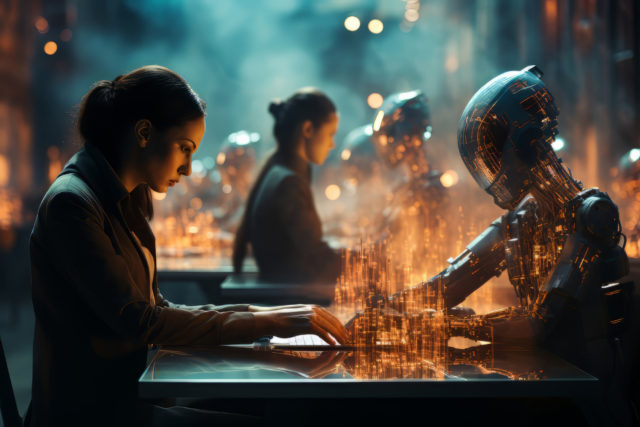(Adapted from Bernard Marr’s article in Forbes, October 2025)
In 2026, generative AI will no longer feel experimental — it’s becoming a fundamental part of how organizations operate and how individuals create, learn, and communicate. What began with tools like ChatGPT in 2023 has now evolved into a multi-industry revolution, reshaping workflows, creativity, and innovation.
While challenges like copyright disputes, bias, job transformation, and ethical oversight continue, the potential of generative AI — to accelerate productivity, spark creativity, and extend human capability — is undeniable. According to Forbes contributor Bernard Marr, here are ten key trends set to define 2026:
1. Generative Video Comes of Age
AI-generated video production is becoming a serious creative tool. Shows like Netflix’s El Eternauta already use AI to enhance animation and reduce costs. By 2026, expect large studios and creators alike to rely more heavily on generative tools for visual effects, storytelling, and editing.
2. Human Authenticity Becomes a Differentiator
As AI floods the internet with auto-generated content, audiences will crave authenticity. Real voices, emotional storytelling, and unique cultural perspectives will stand out. The human touch — what feels “genuinely lived” — will become a key competitive advantage.
3. Copyright Clashes Intensify
The debate over who owns the data that trains AI will heat up. As generative models rely on massive datasets of human-created work, legal disputes and regulatory efforts will grow. 2026 will likely see new frameworks emerge to protect creators while allowing innovation to continue.
4. From Chatbots to AI Agents
AI assistants will move beyond responding to prompts. They’ll act autonomously — planning, prioritizing, and completing tasks across apps and systems. Platforms like ChatGPT’s Agent Mode, Gemini, and Claude are early examples of this transition toward proactive digital partners.
5. Privacy-Focused AI Solutions
Concerns about data security are leading to demand for on-device or private-cloud AI. Businesses and individuals will increasingly seek systems that ensure control over sensitive information while maintaining high generative performance.
6. Gaming Revolutionised by AI
Games will become more immersive through AI-driven storytelling, dynamic environments, and lifelike characters. Developers will use generative AI to cut costs and expand creativity — while players experience worlds that feel truly adaptive and intelligent.
7. Synthetic Data for Safer AI Training
Generative AI will increasingly produce synthetic data for use in simulations and analytics. This allows organisations — especially in healthcare, finance, and research — to train models effectively without compromising real personal data.
8. Generative Search Redefines the Web
AI is transforming search. Tools like Google’s Search Generative Experience and platforms such as Perplexity are blending conversational summaries with ad models. In 2026, new monetization structures will arise as search becomes more interactive and contextual.
9. Scientific Discovery Accelerated by AI
Generative AI is becoming a core tool in science — speeding breakthroughs in fields like drug design, climate research, and materials engineering. AI can now generate hypotheses, simulate results, and guide researchers toward faster discoveries.
10. New AI Roles and Careers Emerge
AI isn’t just replacing jobs — it’s creating new ones. Roles like prompt engineers, AI ethicists, model trainers, and AI auditors are becoming essential. In 2026, these professions will form the backbone of how organizations collaborate with intelligent systems.
The Bigger Picture
As Forbes highlights, the boundary between human and machine creativity is fading fast. Generative AI will continue reshaping industries — from entertainment to science — while demanding new skills, ethical guidelines, and a rethinking of how we define originality and value.
Organizations that embrace these changes with curiosity and responsibility will be the ones to thrive in the age of intelligent creation.
